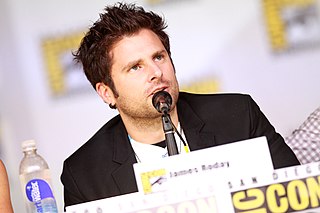A Quote by Norman Finkelstein
The moment you have massive social and political commentary trying to explain a phenomenon, then you know we are no longer dealing with a strictly psychiatric question.
Related Quotes
Political parties often take advantage of denial and fear in a moment of change. This is a well understood phenomenon that often leads to scapegoat-ism: blaming outsiders, such as immigrants, or racial and religious minorities. The phenomenon is behind Brexit and the violence in the political cycles in the US and EU.
By trying to give an artistic approach through my book I stepped unwillingly into other fields. Like a dentist being asked about a throat ache on a much more relevant scale, I was caught in trying to explain what was unexplainable for me. In the end, trying to explain why it was unexplainable finally led to a huge general insecurity in dealing with the subject at all.
The very essence of political philosophy is the carving out of an ethical system - strictly, a subset of ethics dealing with political ethics. Ethics is the one rational discipline that demands the establishment of a rational set of value judgments; political ethics is that subset applying to matters of State.
There is one way to understand another culture. Living it. Move into it, ask to be tolerated as a guest, learn the language. At some point understanding may come. It will always be wordless. The moment you grasp what is foreign, you will lose the urge to explain it. To explain a phenomenon is to distance yourself from it.
There are people who believe that there should be a standard psychiatric examination for every presidential candidate and for every president. But these are difficult issues because they can't ever be entirely psychiatric. They're inevitably political as well. I personally believe that ultimately ridding the country of a dangerous president or one who's unfit is ultimately a political matter, but that psychological professionals can contribute in valuable ways to that decision.
To take on the question of race in America and believe that you could transform this country so that it would actually be a place that was welcoming for everyone that was here, including dealing with the history of slavery and the kind of oppression this country is based on, that's an amazing moment to begin to find your own political ideals.
I never write something and consciously embed political commentary or any other kind of commentary. I just try to get the characters into a room or out of a room, or onto the plane, or through the grocery store. The political stuff, the class stuff, the gender stuff, is in the air, it's in their interactions, because it's there for all of us.




































